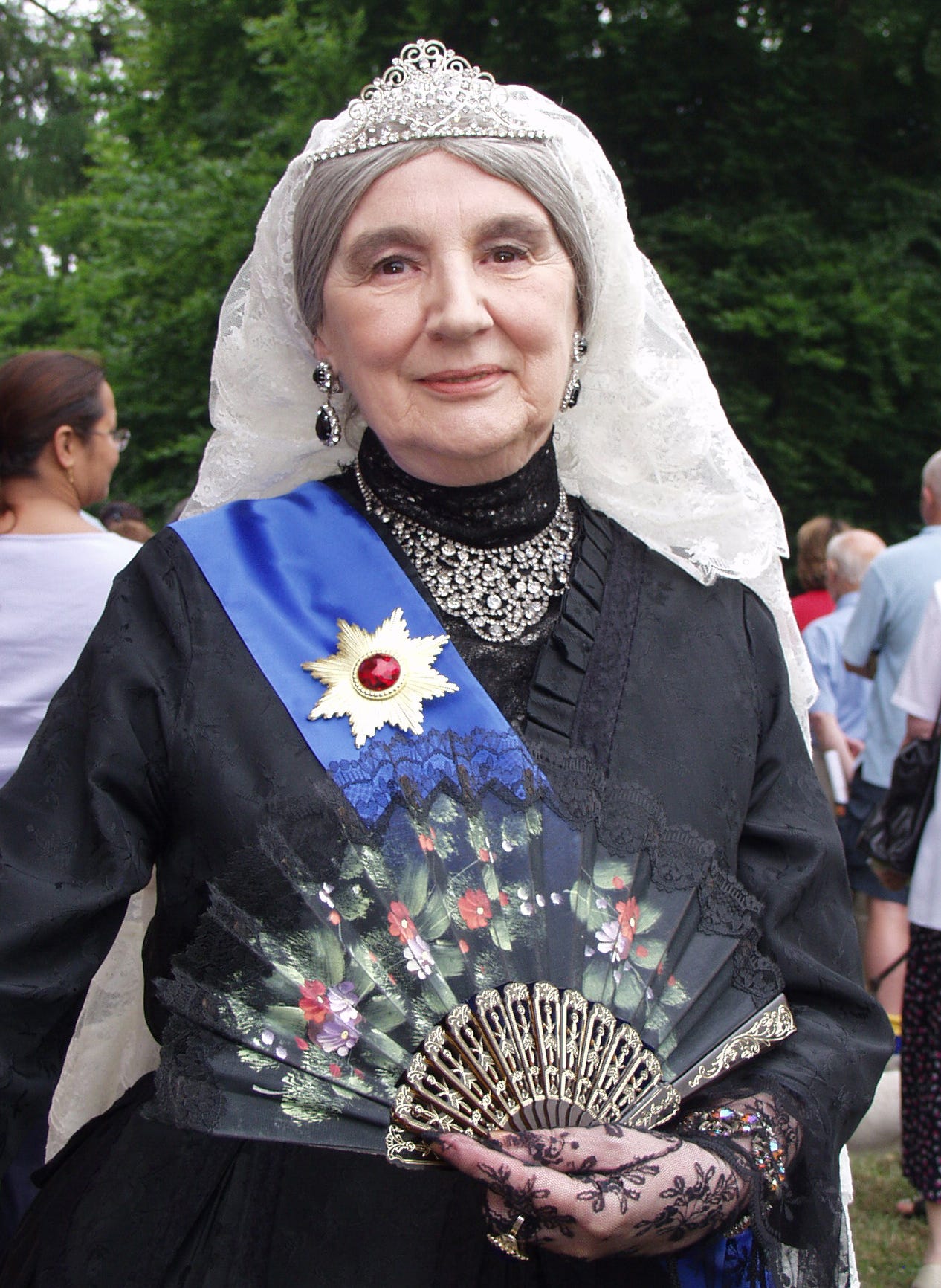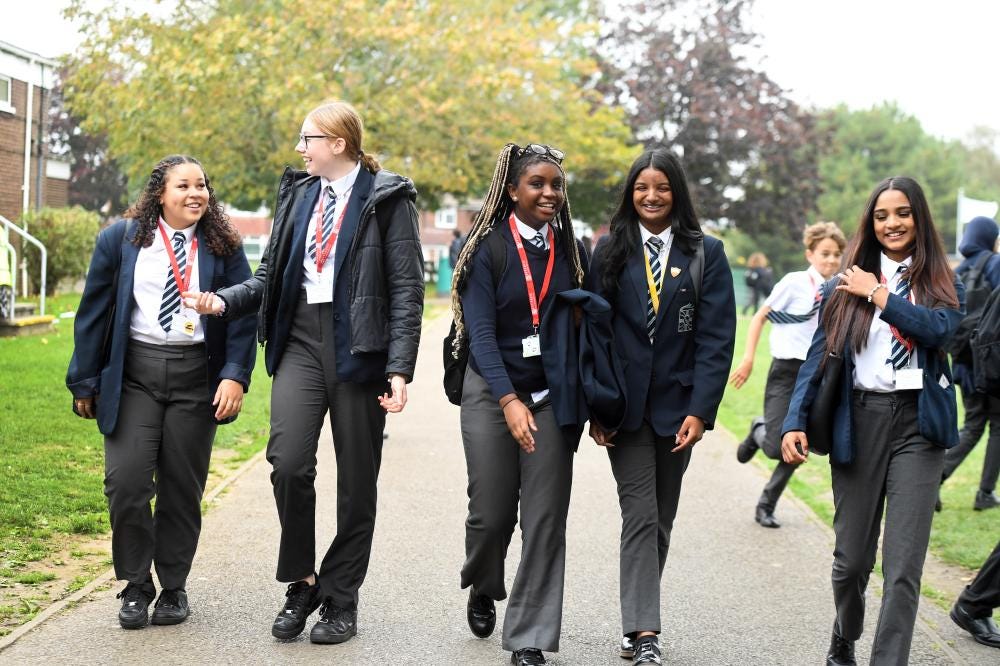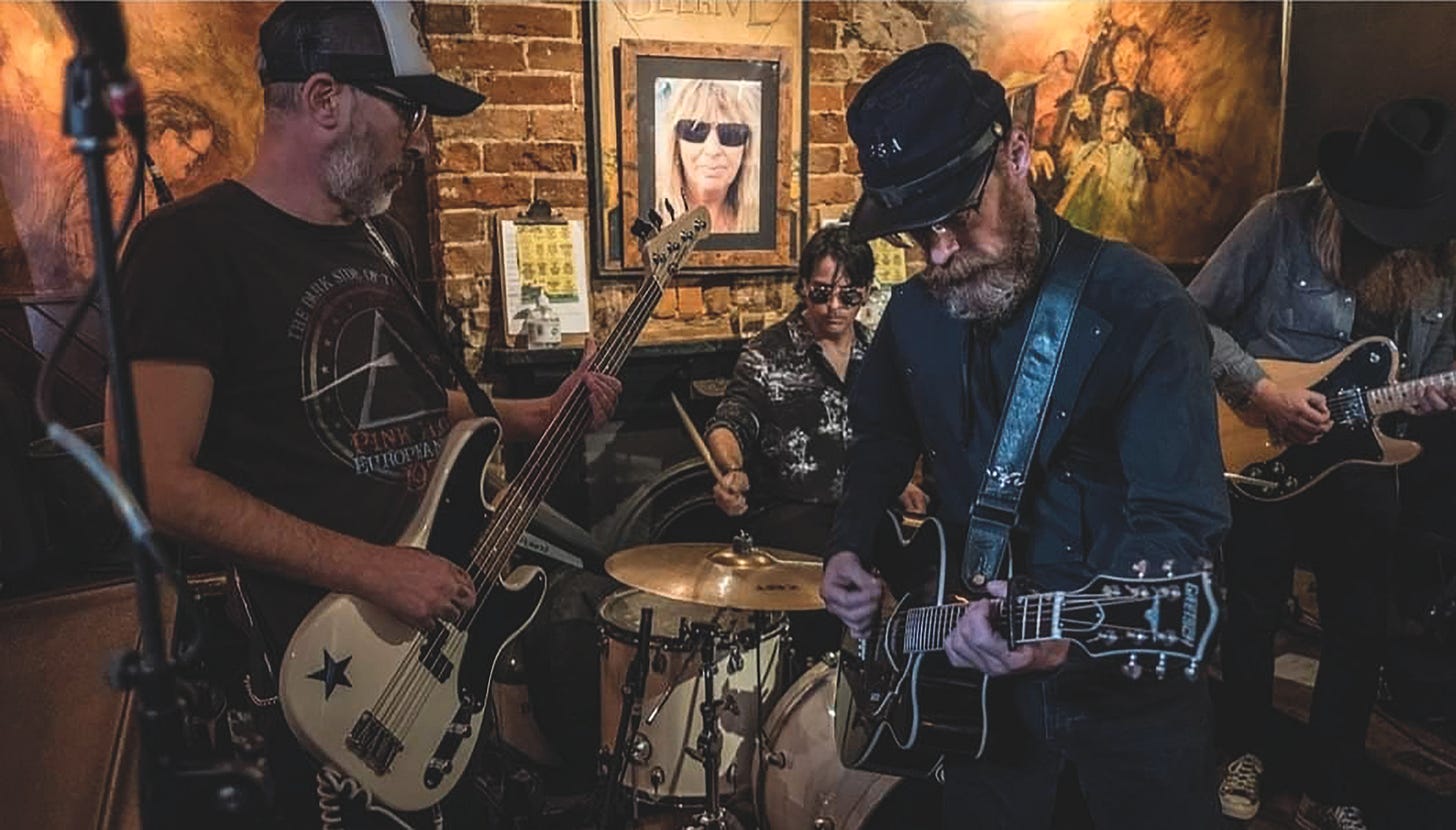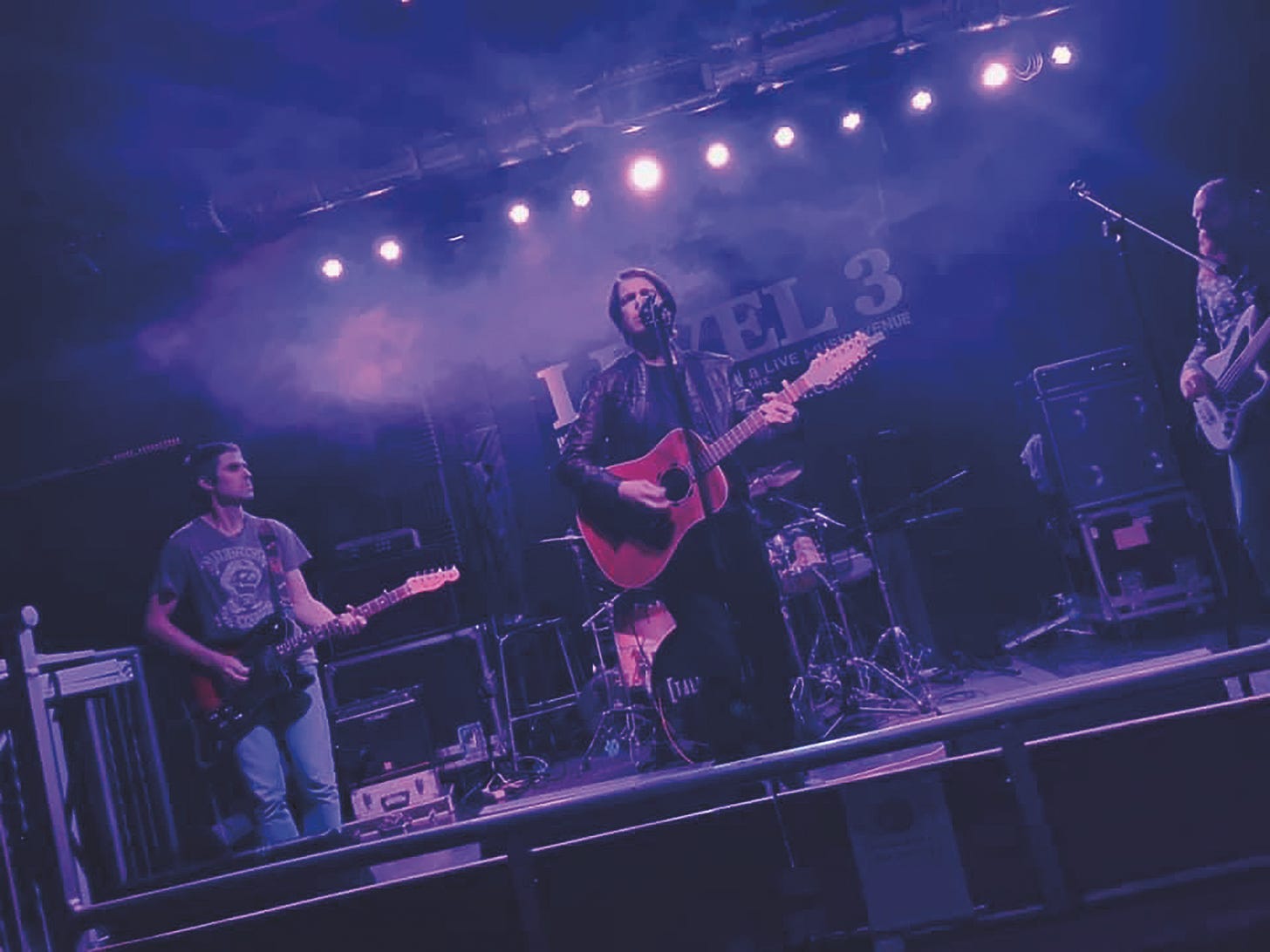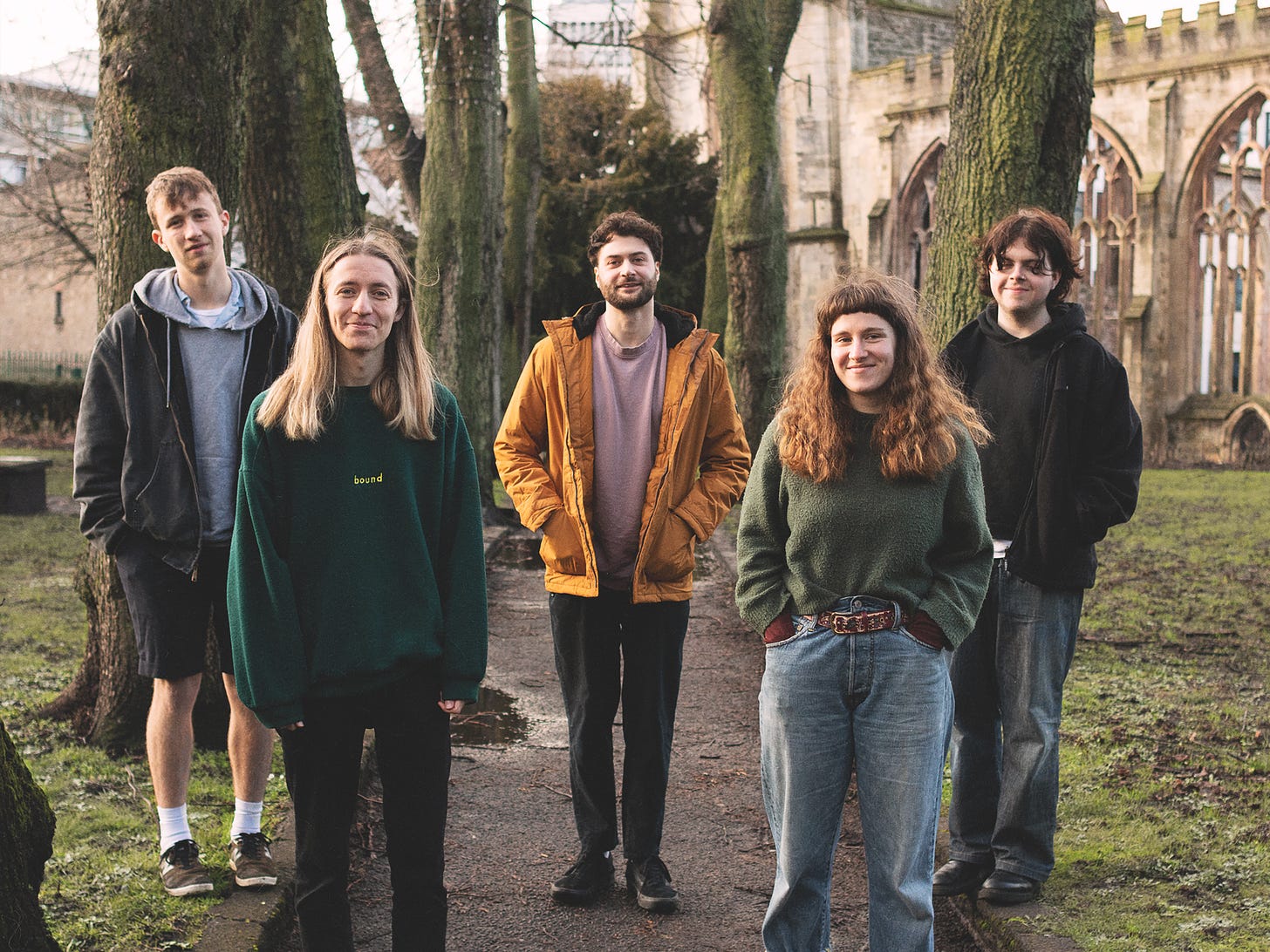From code breaking to Queen Victoria - the extraordinary life of Mary Ratcliffe
Barrie Hudson remembers a much-loved Swindonian with pride
You’re reading the Friday free edition of The Ink - curated community news for Swindon straight to your inbox. Every Friday this edition is sent out to both free subscribers as well as paid subscribers. If you upgrade to paid, you will not only be supporting the most exciting and ambitious media venture in the South West but you will also get 12 extra members-only news briefings every month and will be invited to our Ink Members Club events. It costs just £1.50 per week.
The Ink is going from strength to strength and we now have 283 subscribers, which is pretty significant for us especially as it’s only been a few months. But to make this work we need more.
Every subscriber means the world to us, especially those who have already upgraded to the paid version. It means we can do what we do and bring back proper journalism to Swindon.
As this edition is going out to all subscribers, we have included a share button as there’s no paywall and if you feel so inclined we would love it if you used it to let even more people know about this exciting project for Swindon.
Again, thank you and keep supporting The Ink.
Please note - we won’t be running any Inks between Christmas and New Year. Even us reporting workhorses need a break now and again to recharge our batteries and to get really stuck in to Christmas pudding.
Winter Offer
Throughout the winter The Ink is offering new subscribers three months free on a paid subscription. To take advantage of this press the link below…
Mary Ratcliffe: Known for impersonating Queen Victoria, far less so for secretly helping to save the world from Nazi tyranny
When the news of Mary Ratcliffe’s death at the age of 98 was recently announced, many a Swindon person will have felt a pang of sadness, perhaps tempered by pleasant nostalgia. For many years, Mary Ratcliffe was a much-loved fixture of public celebrations and charity events in Swindon, particularly when the organisers wanted to generate a carnival atmosphere. Mary would dress as Queen Victoria circa the 1880s, complete with voluminous dress, tiara and authentic hairstyle. Mary even managed to mimic the stern expression the late monarch adopted for photographs, albeit briefly - though she was never forbidding because her innate goodness could not be disguised. What hardly anybody realised, and what Mary never spoke of publicly until very late in her life, was that during World War Two she had a key role in preventing the world from being overrun by evil.
By Barrie Hudson
When a reporter gets a job in an unfamiliar town, any newsdesk worth its salt will give the newcomer a grounding in notable local people they are likely to encounter for one reason or another.
So it was when I joined the Swindon Advertiser in the late 1990s for a stint which would last 21 years.
The notable local people every reporter must familiarise themselves with?
There are the local politicians of all parties who always get things done, for example.
And the local politicians of all parties who don’t always get things done but can nevertheless be relied on for an immediate quote regarding just about anything from bins to badgers, in exchange for running a stock photo of them looking appropriately happy, sad, concerned or angry.
And the best people to talk to in local charities and other important organisations.
And friendly, quotable family members of locally-born celebrities who have long since headed for London, New York or wherever.
And local experts on a wealth of subjects who can be relied on to say something interesting when their specialist subject is in the news and a deadline is looming.
And so on.
There is another category, however, and it is the most important of all. That category is the community stalwart, one of the small but precious minority of people in every community without whom the place would be poorer and meaner, especially for those who have already been dealt an unlucky hand in life. Such people almost invariably have a seemingly boundless energy for doing good things, coupled with a reluctance to talk about their own personal achievements, let alone accept any praise or credit.
Mary Ratcliffe fell firmly into the category of community stalwart. She was always happy to promote good causes and help others in any way she was able, whether in her familiar guise as Queen Victoria at public events or in far less prominent ways.
She would often write to the newspaper on heavy paper in an exquisite copperplate hand, usually to alert the editor of the day to a good cause or an injustice. Occasionally she would send poetry, which was printed on the letters page.
In all those years of making the world a better place, she never promoted herself - and certainly never mentioned her role, decades earlier, in preventing the world from becoming a Hell and perhaps saving tens of millions of lives in the process.
It was only in 2014 that Mary agreed to be interviewed by me in the newspaper about her work during World War Two, when she was one of a team of women who deciphered top secret German military communications. Those communications were gathered by a decoding process so secret that even revealing its existence would have been treason - and potentially punishable by the noose - until the 1970s.
Without that crucial information, Nazi victory in the conflict, followed by the murder of countless more millions throughout the globe, would have been a very real possibility.
Even that interview with Mary was only granted because The Imitation Game, the biographical film about Alan Turing, the mathematical genius who led the decoding, had recently been released, and Mary wanted an opportunity to heap praise on him.
Information about Mary’s own role had to be coaxed from her. At just 19, she joined the Women's Royal Naval Service, and after vetting found herself bundled into a covered lorry and taken to a secret base in Middlesex, where she and other recruits had to take a solemn vow of silence about their work. So secret and so significant was that work that Mary and her colleagues could not even be told exactly what they were doing or why.
It is fairly rare for a reporter to feel honoured at having interviewed somebody, but I definitely feel honoured to have met Mary Ratcliffe.
For most of us, the jury will always be out as to whether we have made a difference, whether we have shifted the planet in the right direction on its axis, even a little.
And then there are the Mary Ratcliffes of this world.
The Ink News Briefing
Lawn Manor Academy leads the fight against bullying - The school is one of only 18 schools taking part in the United Against Bullying Plus (UAB+) pilot programme across England. The programme’s holistic approach will support children who are most at risk of perpetrating bullying, as well as supporting those, together with their parents and carers, who are experiencing bullying. Read More
Young people take action to improve Swindon and Wiltshire environment - Ambitious plans to improve the environment in and around the River Ray in Swindon will be spearheaded by young people. Read More
Nearly three quarters of A&E arrivals at Great Western Hospitals seen within four hours – missing NHS target - NHS England figures show there were 10,491 visits to A&E at Great Western Hospitals NHS Foundation Trust in November. Of these, 7,495 were seen within four hours. Read More
Haydon Wick Parish Council freezes councillor allowances for third year - Councillors unanimously voted to reject Swindon Borough Council’s Independent Remuneration Panel’s allowances recommendation and freeze their allowances for a third year running. Read More
The Ink Piece
The State of the Music Nation Address
By Ink music writer Dave Franklin
It's been a tough year for music. Then again, there hasn't been a year in the past few decades when you wouldn’t be justified in starting an article like this with such words. The reasons are varied, and many often relate to social trends rather than musical taste and financial concerns as opposed to fad or fashion. So, I thought I might end the year with a look not at a specific band but by discussing some of the problems music faces in the modern age. But don't worry, it won't all be doom and gloom, and hopefully, by the end, I will have offered some silver linings and pointed out how we need to think differently about music if it is to survive and how it might fit into our lives in the future.
Never trust people who say product when they mean music.
I'm old enough to remember pre-internet days, and we all know what a double-edged sword that has proved to be. While technology and progress can change our lives irrevocably, it isn't always for the better. "We want music for free," we heard the children of the technological revolution cry. And they got it via fledgling platforms like Napster and now through its modern equivalent, Spotify. But imagine if, almost overnight, the thing you did for a living was suddenly regarded as worthless, or if not worthless, a thing of little currency and certainly not something many people could expect to make a living from. Worse still, what if that centuries-old free market, the literal gig economy, was replaced by a system that saw contributors work for nothing whilst only the top 1% of creatives saw any meaningful return and those that drove the system became fabulously wealthy? Well, that is where wanting free stuff gets you, I guess.
Similarly, the demise of record labels hasn't helped. Today, a handful of global record labels are running everything, but that wasn't always the case. Small and medium-sized labels offered a lot. A&R people spotted artists based on talent rather than guaranteed financial returns. When you remember that Whitney Houston was once dropped from her label for only selling 2 million copies of her album, you see how far we have come. Labels also helped an artist develop, often in their own time. Seventies label boss David Geffen, for example, put out three Tom Waits albums before even breaking even financially; today, he wouldn't even get a look in, and can you imagine a world without Tom Waits in it? It is best not to answer that; he is an acquired taste. Labels didn't make records; they made careers. They were filters, doing the work for us to bring on the acts that mattered.
Do not only trust people who watch bands in big venues.
And those are just some of the issues faced at a global level. But technology and the fact that the record industry feels like it exists on a different planet has created an exciting phenomenon, a silver lining, an opportunity that filters into local concerns. With the grassroots music community and that once all-important record contract now almost mutually exclusive places, there has been no more significant time to create a homegrown scene. I know people hate the word scene, but I like it; if you prefer, think community, local hub, network or even a recognisable local sound or style, vibe or attitude. The Swindon Sound... has a nice ring; it sounds like music capturing the echoes of the sounds of diesel locomotives and carriage workshops and turning them into grooves and beats.
The Titanic sails at dawn, a.k.a. oops, we did it again.
As the minor deity of music journalism, Mick Farren once pointed out, perhaps music is headed for an iceberg. Just as he predicted, though in hindsight, his comments came in 1977, the big-time, jet-set, pop-rock, tax exile, unit shifting, showbusiness music Titanic was heading for a crash. The iceberg he saw from the crow's nest was punk; today's iceberg is shaped more like musical freedom and opportunity. If creatives stop playing the record label executives' game, is there a will to storm the barricades, tear down the system or at least certain bits of it, and build something more sustainable? Something that better promotes and supports local music in all its forms - bands and orchestras, bar room buskers and singalong piano players, local studios and supportive venues, promoters not just looking for a quick buck, and genuinely interested media. Something to be proud of. If we build that, or at least the structure to encompass that, will they come? I like to think so.
Never trust anyone who doesn't buy a CD on the way out.
And if we are building this new sonic Jerusalem, where should we begin? The venues and music pubs are the most obvious places, but it might be more challenging than that, especially when things like nostalgia get in the way. Nostalgia has always been inherent in music; bluesmen, folkies, and jazzers have always rewarded the standards of the past. Most people get more of a kick watching a band play the music of their formative record collections than experiencing something new and challenging, say a bunch of seventeen-year-olds playing pastoral psychedelic pop over Latin-infused hip-hop beats. Especially if you only get to go out once a month and want to avoid risking things. We all pander to our individual comfort zones; they are, after all, very comfortable.
But nostalgia never built the future. And before you think, "Oh no, here's Franklin in one of his anti-cover band rants," and flick back to watching Bella Porch lip-syncing on TikTok, let me say I get it. I do. I get that the business model for tribute bands works for venues and punters, that cover bands are guaranteed bums on seats, and that anything that at least keeps a venue open is something to be applauded. Yes, but does it work for the long-term sustainability of music?
Given the financial strain of just getting through the week, the cost of a night out at a gig can be prohibitive. Even if it is cheap enough to get in, by the time the price of drinks and travel are included, many opt for something else. Imagine if you are a nineteen-year-old working a zero-hours contract, earning per hour just enough to buy a pint of Snorrington's Antiquated Speckled Badger; your inclination is going to be to not meet at a gig but instead, get a few mates around and indulge in a couple of bottles of cheap cider, a Spotify playlist and supermarket-bought pizza.
I'm not knocking on the venues we have, and I don't want to see them go out of business as they do great work. Places such as The Beehive, The Vic, The Hop, The Castle, The Tuppenny, and many more all do sterling work, and I should know, I have spent many a drunken night watching great music in all of them—many, many times. But perhaps there are other structures that need to be built to add to the existing landscape to create our new musical vision.
Never trust people who say that they should be on the guest list.
So, and this is where we start to get optimistic, what is the answer? We need to break the model, let the Titanic hit the iceberg and see what exciting ice sculptures and shards of metal are left in its wake. In short, we must move away from traditional ways of thinking about music and how it is framed.
For most, music is something performed on stage, in a venue, with a bar that you paid to get into. That music is, by and large, a band playing some variation of the old blues progressions - pop rock, folk, country, and in the case of Swindon, the bands are primarily male and probably white.
But music is so much more than that, and it is everywhere; it is fledgling orchestras and steel bands, string quartets and samba processions, choirs and ceilidhs bands, reggae bands and bhangra dancers, folk pickers and singalong pub pianists and everything in between.
The modern form of music comes mainly from the troubadour tradition and from devotional praise. So, either from people singing for supper or dedicated to a higher purpose. No rock stars, egos, no likes or followers, no us and them, no division between performers and audience, no reality TV shows called Britain's Got Jobbing Lutists or Pope Idol, just people making music for all the right reasons.
Never trust anyone who says nothing ever happens in Swindon.
What if we began seeing more music in coffee shops, drop-in sessions, shopping centres, restaurants and community centres? What if those happened during the day and the evening and were accompanied by drinking coffee and eating tapas rather than being beer-soaked affairs?
So, I guess my point is that times are tough for music, so maybe that means we need to take another look at how its mechanics work. Maybe we need a new year zero that begins a fight back, taking control out of the realms of celebrity and record labels, ego and fame and using it to build a Swindon-centric network. Music isn't something that happens over there; it should be something that you stumble across everywhere, even in the most unexpected places. And it should be something that is accessible to everyone.
On a side note, it has long been proven that mental health and happiness are enhanced through music, not so much through performance but through joining in, which means that the creation of choirs and pub singalongs should be supported as much by the Arts Council as the NHS.
Never trust people who say things were better back in the day.
So, let's fill this town with music, our music, on our terms. Not music for mass profit; rewards come in many different guises anyway, but music to promote sociability and well-being, for the sake of art itself and as a way of crossing cultural divides. I want to see acoustic popsters playing for the tip jar, people gathered around the pub piano singing old musical hall tunes, string quartets playing Vivaldi on the bandstand, followed by an Orbital dancefloor classic scored for strings, DJs playing ambient tunes, coffee shops, cellists providing the background music in restaurants, rave music playing in the lobby of all night ATMs...okay, maybe not that one, but you get my point.
They say that if you do what you always did, you get what you always got. Maybe it's time to do something different.
Send any review submissions in physical form to:
Dave Franklin, Dancing About Architecture, 21 Portsmouth Street, Swindon, SN1 2LF
DAA is a labour of love site. To show your appreciation for the work we do and help us keep things ticking over any spare change is gratefully received via paypal at greenmanpublications@yahoo.co.uk
The Swindon Link Magazine Archive
Over on The Ink’s sister publication Swindon Link’s website you will find an impressive archive of the past 45 years of Swindon Link magazines, giving you a huge glimpse into the town’s recent past from the beginnings of West Swindon to now. You can find the archive here
The latest magazines
For the North West Swindon Link Magazine click here
For the South East Swindon Link Magazine click here


